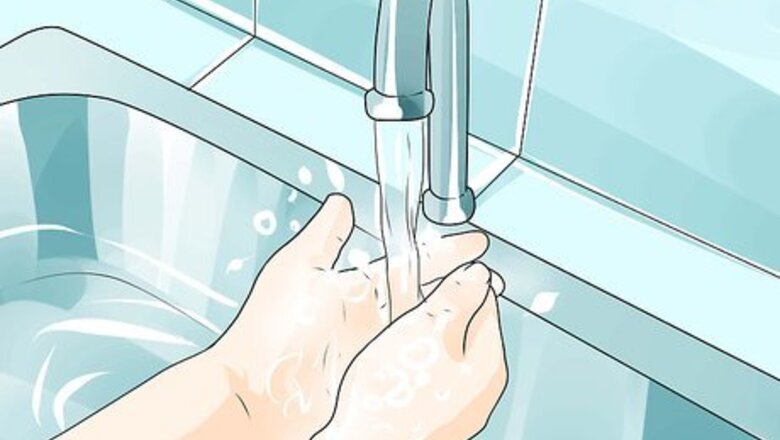
views
Treating the Wound Immediately
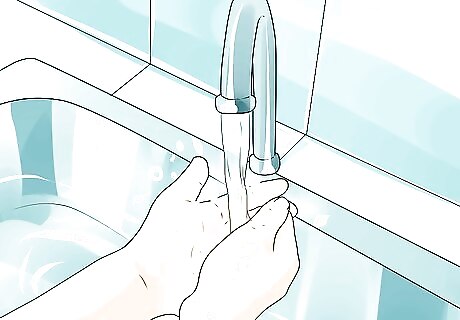
Wash your hands before treating the carpet burn. The burn has damaged the skin, which is the body's first line of defense. Carpet burns and abrasions can become infected if bacteria gets inside them. If the wound does get infected, then
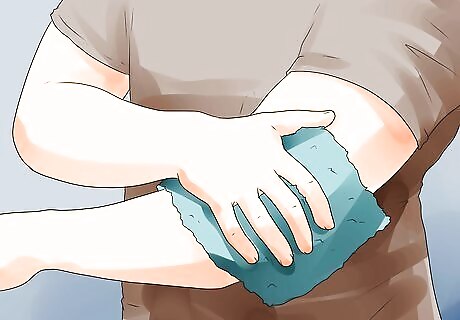
Clean the burned area. Wash it gently with a clean washcloth using warm water and antibacterial soap. Be sure to remove any visible dirt or debris. This helps to prevent any infection.
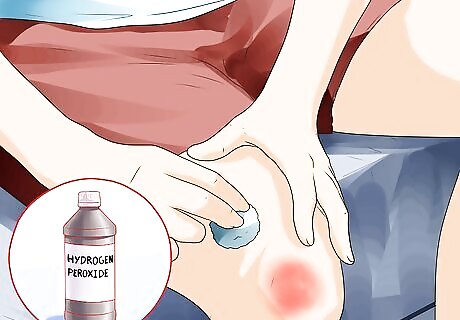
Disinfect the wound. You need to disinfect the wound to guard against infection. Use iodine, hydrogen peroxide, or an antiseptic if there are signs of dirt in the abrasion, or if any bleeding areas are deep. Soak a cotton ball in iodine, peroxide, or antiseptic and carefully dab it on the burn. All of these products may cause some pain when you apply them. Alcohol can inflict pain and cause harm, so avoid using it.
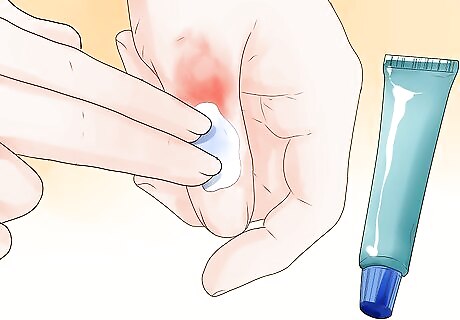
Apply an antibacterial cream to the injured area. Smear some Neosporin or another ointment on the carpet burn. Check the burn for any deeper damage, like cuts or lacerations. These might need medical attention if they are serious.
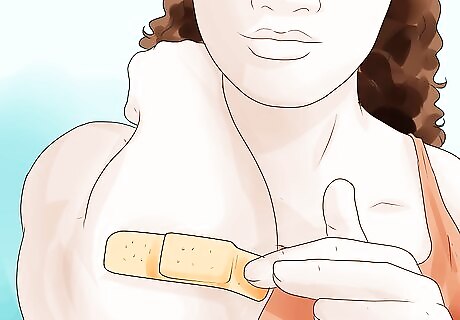
Cover the burn with gauze or an adhesive bandage. Cover the area loosely with a bandage. Remove the bandage and check the burn in 24 hours. If the surface of the skin has started to scab or form a crust, the burn will heal best if left uncovered and exposed to the air. Put a fresh bandage back on for another 24 hours if the skin is still red and raw and crusting has not started yet.
Healing the Burn
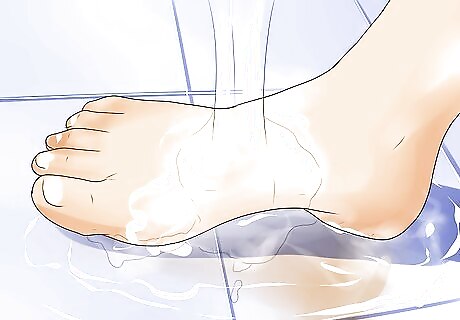
Run cold water over it. If the burn is hot and painful, try running some cool water over the injured area. Try running cool water over the carpet burn for five to 10 minutes every hour or two. Do not apply ice or butter to a burn.
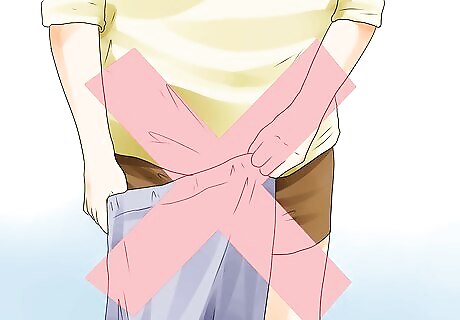
Don't wear clothing over the burn. Fabrics can irritate the burn. If you have to wear clothes over the burn, cover it with gauze or a bandage first.
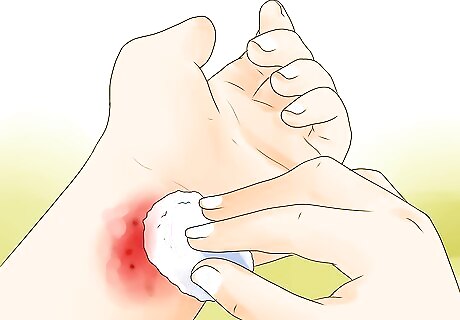
Keep the area dry. Try to keep the burn free from moisture. Moisture encourages bacteria to breed. Dry the skin with a cotton ball if it becomes wet. If the rug burn is oozing, don't wipe it away and further irritate the burn. Instead, remove the gauze or bandage and allow the wound to air dry. If the burn is oozing pus or blood, see a doctor immediately.
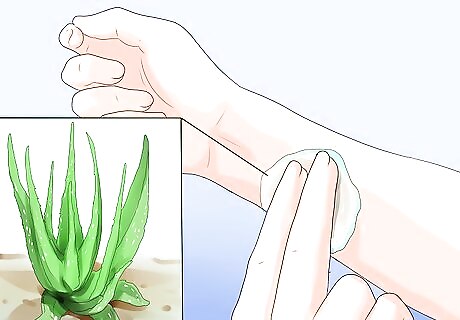
Cover the carpet burn in aloe. Apply some aloe onto the burn to help speed up the healing process. Aloe comes in many forms: spray, gel, liquid, lotion, and cream. You can also get aloe directly from the plant, which is the strongest form. Just cut off a small portion and squeeze the inside gel onto the burn.
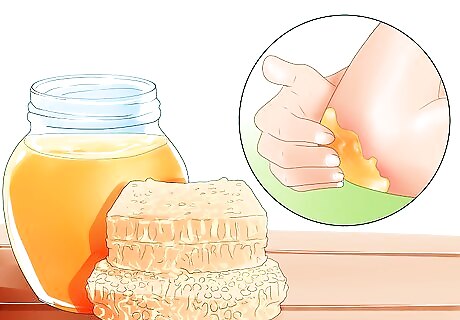
Try honey. Spread some honey over the carpet burn. This can provide relief from itching and help speed up healing.
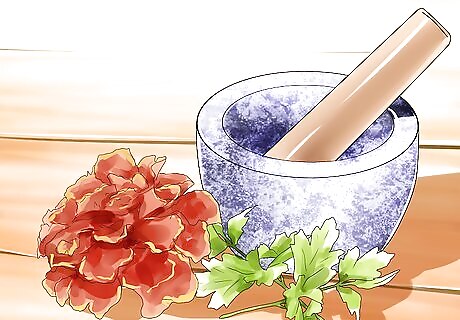
Make a paste from marigold flowers and parsley leaves. Crush some marigold flowers and parsley leaves and mix them together to make a paste. Spread the paste over the wound to help heal the burn.
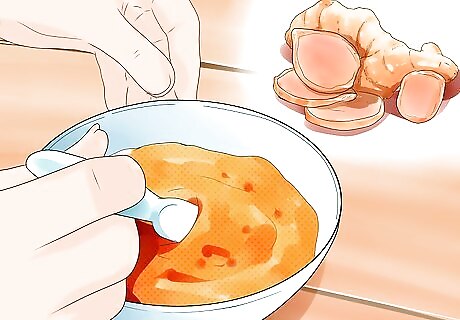
Make a turmeric paste. Turmeric has been proven to stimulate skin regeneration and clean wounds. Mixing 1/4 of a teaspoon (1 ml) of turmeric powder with one teaspoon (5 ml) of cocoa butter. Apply the paste to the area three times a day.
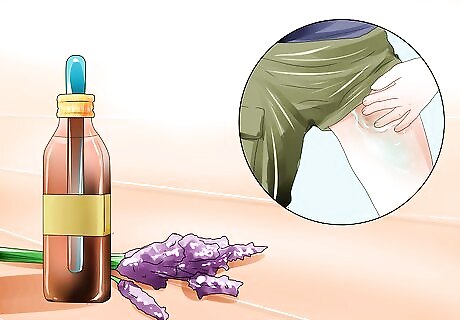
Use essential oils. Different essential oils can help the healing process. Lavender is known to help healing with its regenerative and antiseptic properties. It can also help relieve the pain. Thyme also has regenerative and antiseptic properties. Apply two to three drops of essential oil to gauze and press it to the burn. Change the gauze two to three times a day. You can also clean the wound with five or six drops of essential oil diluted in a cup of water.
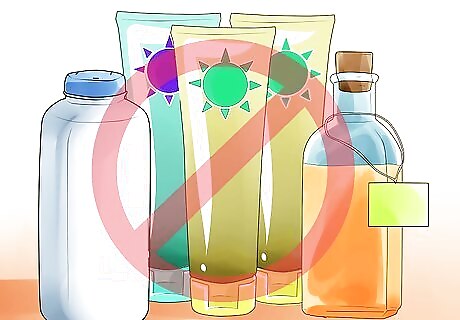
Avoid lotions, oils, and powders. Some products can cause further harm to the carpet burn. You should avoid lotions, powders, oils, sunscreen, and alcohol on the carpet burn.

Increase your vitamins. Increasing your vitamins can help boost your healing. Up your intake of vitamin C to boost your immune system and protect you from bacteria. Eat more citrus fruit, strawberries, broccoli, and tomatoes. Take a daily vitamin C supplement if your diet is lacking. Eat more foods high in vitamin E. These foods include milk, eggs, whole grains, spinach, and asparagus. Vitamin E is high in antioxidants, which helps the body heal.
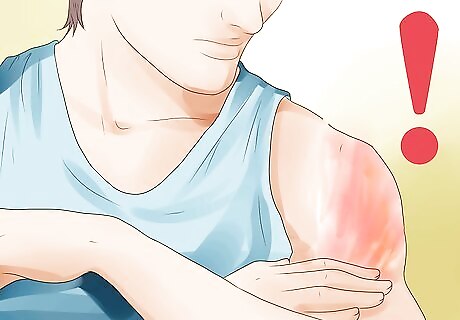
Watch the burn for signs of infection. If you develop any signs of infection, or the wound doesn't heal, see your doctor. Signs include increased redness and tenderness, pus seeping from the wound, a red rash developing that spreads up from the wound, tenderness in the armpits or groin, or fever.




















Comments
0 comment